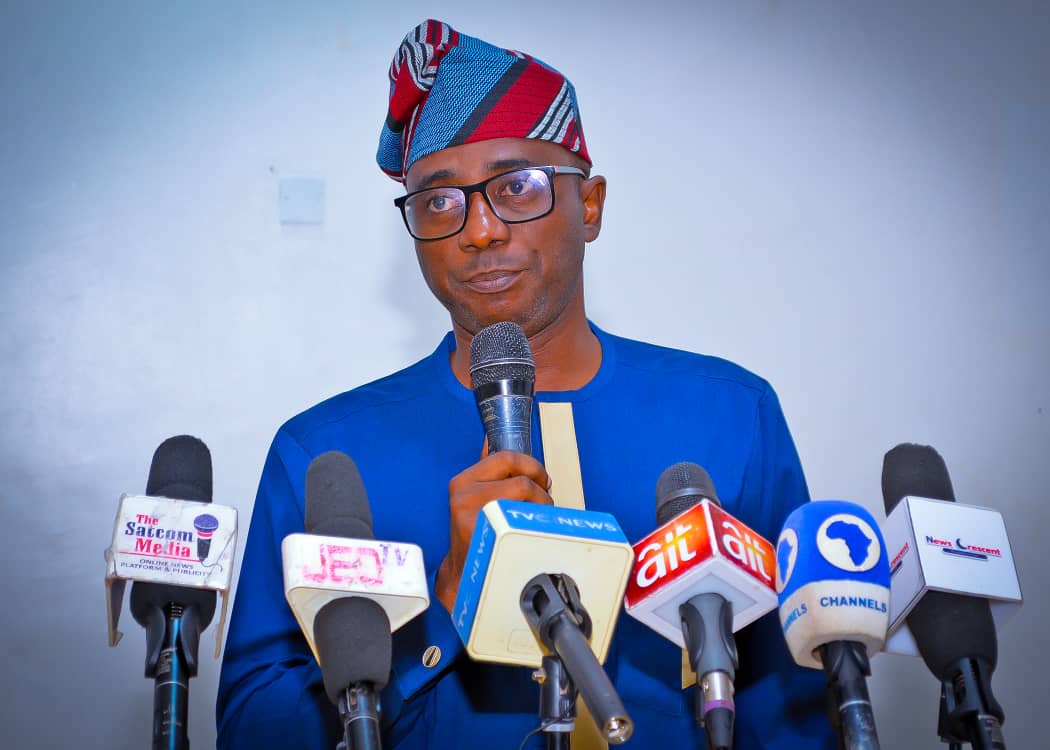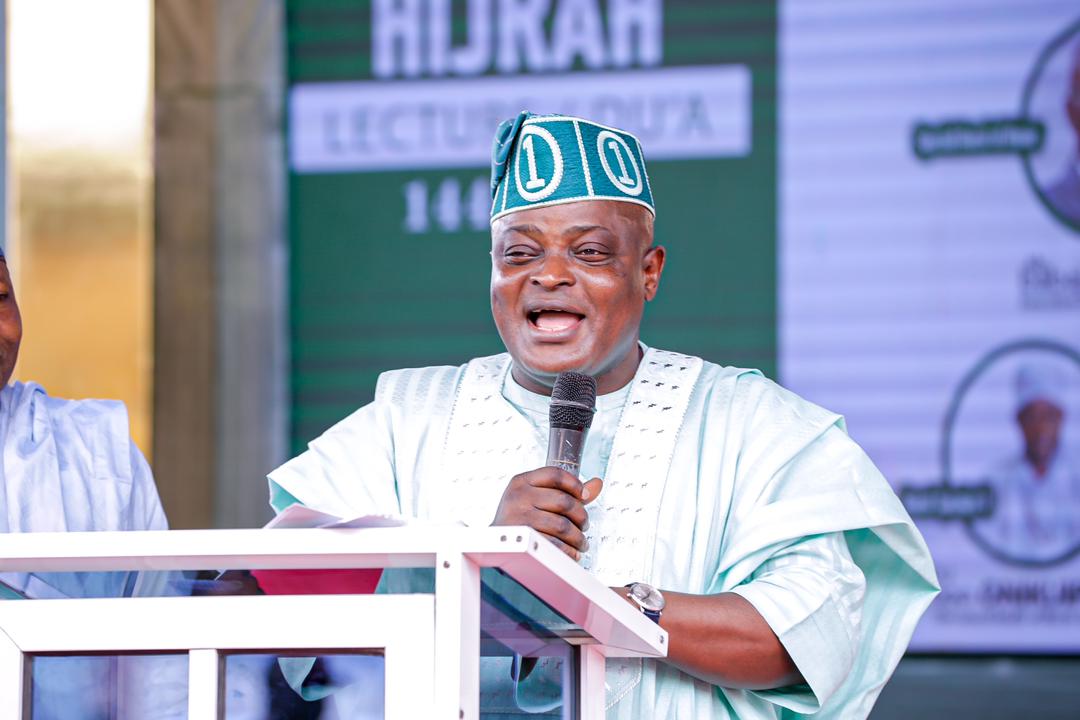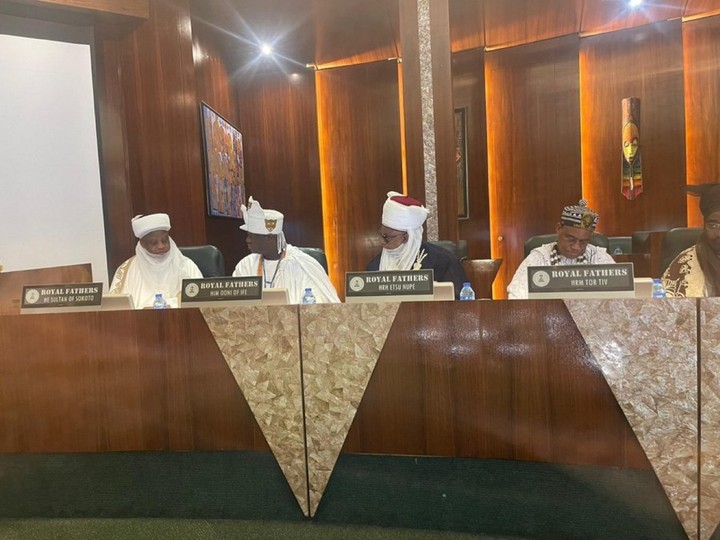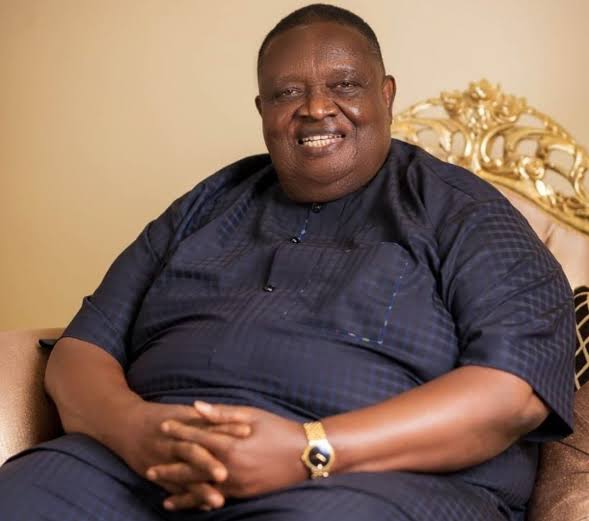The All Progressives People Congress(APC) in Kogi State, has called for the release of party chieftains arrested in Dekina Local government Area(LGA) of the state.
Speaking at a press briefing in Ilorin on Wednesday, the Campaign Spokesperson for the governorship candidate of the party, Mr Kingsley Fanwo expressed reservations on the recent security operations in some parts of Kogi East, especially in Dekina LGA where he alleged that chieftains of the party were arrested without any justifiable cause.
Fanwo who said the APC subscribed to peaceful and free polls also called for responsible conduct on the part of law enforcement agencies.
“Gentlemen of the Press.
We have brought you here today to bring you up to speed on progress and issues surrounding the electioneering as well as the activities of the APC as we gear towards the Nov. 11 governorship election in Kogi state.
“The APC Governorship Campaign Council has expressed reservations on the recent security operations in some parts of Kogi East, especially in Dekina LGA where chieftains of our party were arrested for reasons unknown to us.
“Our chieftains were not involved in any act inimical to the peace of the state and should not have been subjected to such treatment.
“In as much as we subscribe to peaceful and free poll, we also call for responsible conduct on the part of law enforcement agencies in such a way that innocent citizens are not unnecessarily punished for the sins of others.
“We would not condone or defend any act of lawlessness, but we make bold to say that our leaders and members that were arrested and detained did not deserve to be subjected to such treatment as they are innocent.
“We call on security agencies to release them unconditionally so that they can be reunited with their families”, he said.
The campaign spokesperson said that security agencies must prove that every life is important.
He called on citizens of the state to come out en masse to make a big statement in order to ensure that the state will never be in the hands of division merchants and ethnic bigots.
“A member of the APC was murdered in cold blood at Kotonkarfe for daring to wear a fez cap with the logo of the APC on the day the blood suckers were in town.
“It is sad that security agencies have not informed us how far they have gone in apprehending the trigger happy thugs that committed the murder.
“We salute advocacy groups who have not lost their voices in seeking justice for Khadija, acts of terrorism must not be allowed in politics and the surest way to arrest the trend of political violence is to ensure perpetrators are brought to book.
“Those who killed Khadija have continued to think they can step on her blood to power.
“Those perpetrating violence know themselves.
“We call on Kogi people to troop out on Nov.11, we must speak unmistakably that as a people, we believe in consolidation and continuity of the laudable achievements of the present administration”, he said.
He said that those who killed for power; those who swim in mediocrity and falsehood; those who are enshrined in forgery and rumour-mongering will get their scorecards from the Kogi people on Nov. 11.
He assured that the candidate of the APC will not govern with vindictiveness, saying, he will heal the wounds and move the state forward.
“For us, Nov.11 is not just a date, but a doctrine of reward for good work.
“Let it be made clear to all that the leadership of the APC is committed and determined to keep the state within the progressive family”, he said.
Fanwo said that the People’s Democratic Party(PDP) candidate was not a threat to the victory of APC candidate in the state.
“While we have chosen not to join issues with them, their ignorance and hate campaign have strengthened the resolve of the Kogi people not to replace greatness with mediocrity.
“It must be on record that their bitterness and ethnic jingoism are borne out of the frustration of being rejected by the people. They have failed in selling themselves. They have failed in selling their manifestos. They have failed in deceiving the people. The people have rejected division. They have failed in discrediting a successful administration.
We thank the people of Kogi for showing resilience and faith in our candidate.
“Our appreciation also goes to the President and Commander in Chief of the Armed Forces of the Federal Republic of Nigeria, His Excellency President Bola Ahmed Tinubu , GCFR, for insisting on credible poll and for also showing support to his party as the National Leader of the party.
“Ahmed Usman Ododo will ensure Mr President is not disappointed. We thank the National Chairman of our party and all the leaders and members of the National and Local Campaign Councils.
“We have run a campaign that has kept our state together and reassure our people that the next administration will consolidate and continue with the laudable achievements of the present administration, with Ododo, Kogi will be better”, he assured.

 Business6 months ago
Business6 months ago
 Business6 months ago
Business6 months ago
 celebrity radar - gossips6 months ago
celebrity radar - gossips6 months ago
 celebrity radar - gossips6 months ago
celebrity radar - gossips6 months ago








